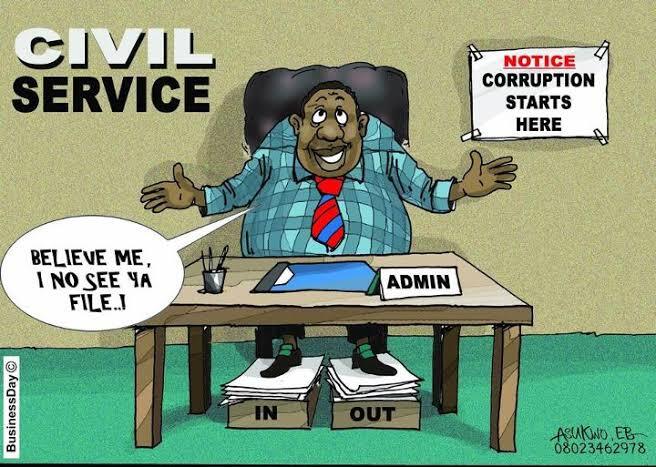Corruption has been a longstanding challenge in Nigeria, hindering the country's progress and development. Addressing this issue requires a comprehensive approach that involves both the government and its citizens. In this article, we will explore some effective strategies to overcome corruption in Nigeria and foster a transparent and accountable system.
1. Strengthen Anti-Corruption Laws and Institutions:
To combat corruption effectively, Nigeria needs strong and enforceable laws that explicitly criminalize corrupt practices. The government should also establish independent and specialized anti-corruption agencies with sufficient powers and resources to investigate and prosecute cases of corruption. Strengthening these institutions will foster a culture of deterrence and help restore public trust.
2. Enhance Transparency and Accountability:
Transparency is a key element in combating corruption. The Nigerian government should promote transparency by adopting measures such as the publication of government budgets, procurement processes, and financial statements. Additionally, implementing a robust system for asset declaration by public officials and regular audits can help identify and prevent corrupt practices.
3. Promote Whistleblower Protection:
Whistleblower protection plays a crucial role in exposing corruption and encouraging individuals to come forward with information. Nigeria should establish a comprehensive legal framework that guarantees the safety and anonymity of whistleblowers. Offering rewards and incentives for reporting corruption can also incentivize individuals to expose wrongdoing.
4. Encourage Citizen Participation:
Engaging citizens in the fight against corruption is vital. The government should promote civic education and encourage citizens to actively participate in public affairs. This can be achieved through public awareness campaigns, community dialogues, and the establishment of citizen-led anti-corruption groups. Empowering citizens to hold public officials accountable will foster a culture of integrity and discourage corrupt practices.
5. Embrace Technology:
Leveraging technology can significantly help in reducing corruption. Implementing e-governance initiatives, such as online platforms for public service delivery, can minimize human interaction and reduce opportunities for bribery and extortion. Additionally, adopting electronic payment systems and digitalizing government processes can enhance accountability and transparency.
6. Strengthen Judicial System:
A robust and independent judiciary is essential for combating corruption. Nigeria should prioritize judicial reforms, ensuring fair and expeditious trials for corruption cases. This includes providing adequate training for judges, improving court infrastructure, and establishing specialized anti-corruption courts. Strengthening the judicial system will enhance public confidence in the legal process and discourage corrupt practices.
Conclusion:
Overcoming corruption in Nigeria requires a multi-faceted approach that involves legal reforms, institutional strengthening, citizen engagement, and the adoption of technology. By implementing these strategies, Nigeria can foster a culture of transparency, accountability, and integrity, paving the way for sustainable development and a brighter future for its citizens.




